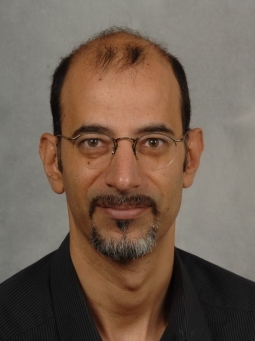Spring ’19 Joint CSC@USC/CommNetS-MHI Seminar Series
 |
Panagiotis Tsiotras,
Georgia Institute of Technology
|
Abstract
The issue of controllability, dating back to Kalman, has been central to the development of modern control theory. The original notion of controllability involves the ability to steer a single initial state to another final state in finite time. In practice, one may want to simultaneously steer many states from some initial distribution to a final distribution, i.e., to control a bundle of trajectories instead of a single one. This is especially true for stochastic systems where controlling the distribution of states provides a measure of uncertainty quantification. Controlling the covariance (in additional to the mean) of a distribution is a first step of controlling the whole distribution and for linear systems with Gaussian noise this all that is needed. Although steady-state covariance control has been around for more than two decades, finite-time covariance steering has only recently received attention in the literature, as part of the general topic of “mass transfer” theory. In this talk I will discuss some of our recent results on finite-time, minimum-energy control of the covariance for both linear and nonlinear systems. A simple relaxation results in a convex programming problem that can be solved efficiently. Probabilistic (chance) constraints can also be incorporated into the framework. The approach should be of interest for many applications where uncertainty is prevalent, and where there is an urgent need to avoid extensive Monte-Carlo simulations to quantify (and remedy) the effect of uncertainty. We demonstrate the approach for robot motion planning under uncertainty and we also will apply the technique to the problem of controlling the size and location of the final landing ellipse during the powered descend guidance phase of an EDL. If time permits, I will also discuss some additional results on control of stochastic systems using forward-backward stochastic ordinary differential equations.
Biosketch
Dr. Panagiotis Tsiotras is the David and Andrew Lewis Endowed Chair Professor at the School of Aerospace Engineering at Georgia Tech. At Georgia Tech, he is the Director of the Dynamics and Control Systems Laboratory and an Associate Director for the Institute for Robotics and Intelligent Machines (IRIM). His current research interests are in optimal and nonlinear control and their connections with AI and applications to aerial, space and ground vehicle autonomy. He holds degrees in Mechanical Engineering, Aerospace Engineering, and Mathematics. He is currently the Chief Editor of the Frontiers of Robotics and AI in the area of Space Robotics and an Associate Editor for Dynamical Games and Applications. Previously, he served at the Editorial Boards of the AIAA Journal of Guidance, Control, and Dynamics, the IEEE Transactions of Automatic Control, the IEEE Control Systems Magazine, and the Journal of Dynamical and Control Systems. He is the recipient of the NSF Career Award, the IEEE Excellence Award in Aerospace Control, the Outstanding Aerospace Engineer award from Purdue, and the Sigma Xi Research Excellence Award. He is a Fellow of AIAA, IEEE, and AAS
